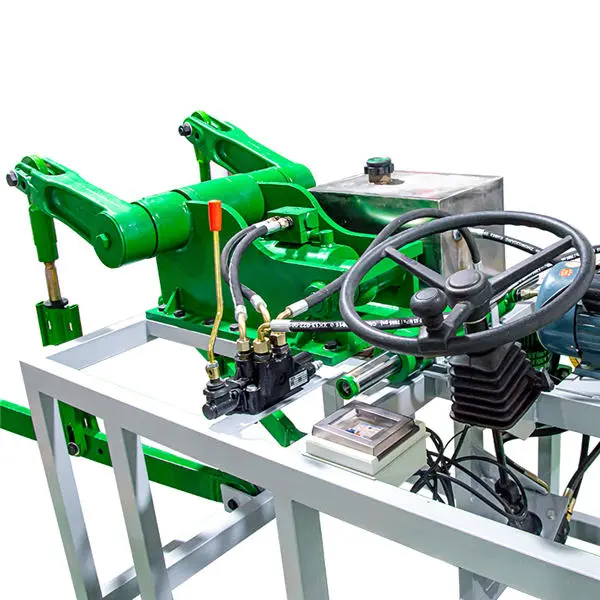Tractor Training Equipment
At Zhongcai, a leading automotive education equipment manufacturer in China, we’re committed to providing top-tier training solutions that empower the next generation of agricultural professionals. Our extensive range of Automotive Training Equipment has expanded to include a specialized category for Tractor Training Equipment.
Supporting Subheading
Other Education Equipment in Zhongccai
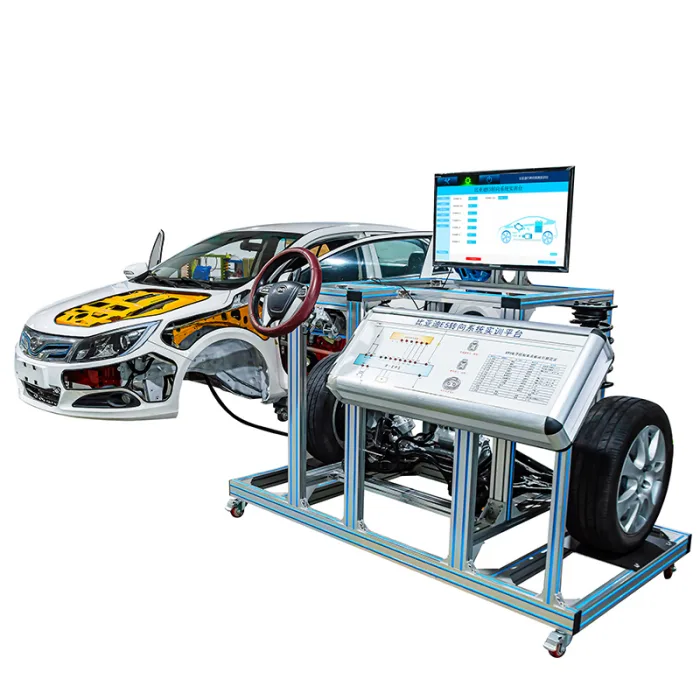
Automotive
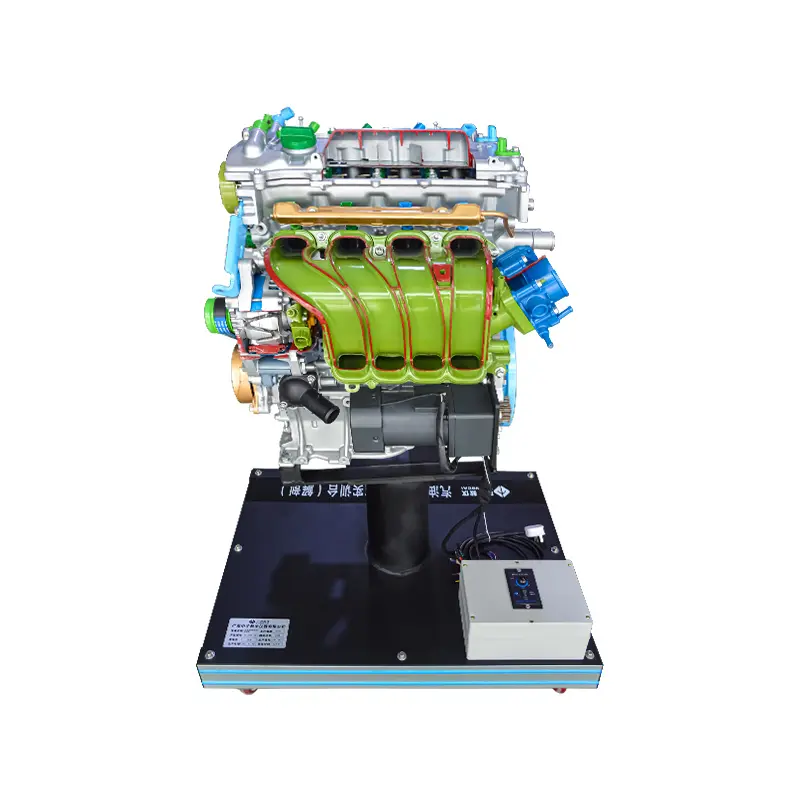
Automotive

Service Three
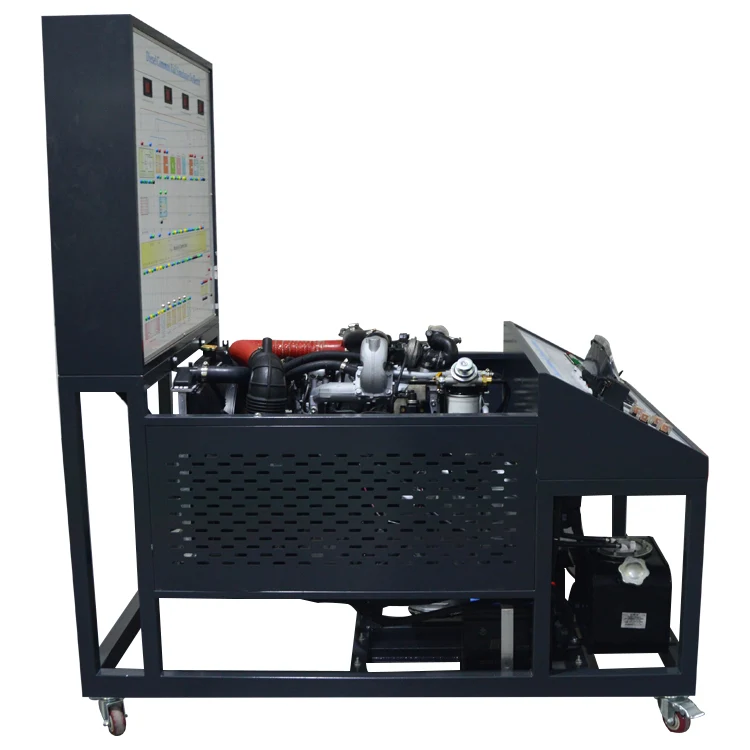
Service Four
Your Best Tractor Training Equipment Supplier in China
When it comes to tractor training equipment, choosing the right supplier can make all the difference in the quality of education and training. At Zhongcai, we stand out as your premier choice for a supplier, offering a unique blend of experience, innovation, and dedication to your success.
- Stable and accurate
- Product robustness
- Support customization
- Good selection
- 24/7 online support
A Complete Guide to Tractor Training
Table of Contents
The Significance of Tractor Training
Tractor training is an essential component of safe and efficient agricultural operations. Whether you’re a seasoned farmer or a novice, understanding the significance of proper tractor training is paramount to preventing accidents, enhancing productivity, and ensuring the longevity of your equipment.
Why Tractor Training Matters
Farming and agricultural tasks involving tractors can be inherently dangerous. Understanding the intricacies of tractor operation and safety is crucial for the following reasons:
Safety First: Tractors are powerful machines, and accidents can result in serious injuries or even fatalities. Proper training equips operators with the knowledge and skills to prioritize safety.
Enhanced Productivity: A well-trained tractor operator can perform tasks more efficiently, increasing overall productivity and reducing downtime.
Cost Savings: With knowledge of proper maintenance and operation, operators can extend the life of their tractors, saving money on repairs and replacements.
Helping Improve Tractor Safety
Tractor training significantly contributes to improving safety in agricultural settings by:
- Reducing the likelihood of accidents, injuries, and fatalities.
- Enhancing operators’ awareness of safety protocols and best practices.
- Ensuring compliance with government regulations and safety standards.
Legal and Regulatory Aspects
Governments often have strict regulations regarding tractor operation. Proper training ensures compliance with these laws and reinforces the importance of following safety guidelines. Operating tractors without the necessary training can lead to legal issues and potential liability.
Types of Tractor Training Equipment
Effective tractor training involves the use of various tools and equipment designed to provide hands-on experience, simulations, and safety awareness. Understanding the types of equipment available is essential to a comprehensive training program.
Simulators and Virtual Training
Simulators and virtual training tools offer a controlled and risk-free environment for operators to learn and practice tractor operation.
They replicate real-world scenarios, allowing trainees to gain experience in a safe and controlled setting.
Hands-On Training Tools
Practical training tools include model tractors, simulated control interfaces, and interactive scenarios.
These tools provide trainees with a tactile understanding of tractor operation.
Safety Equipment and Protective Gear
Safety equipment, such as helmets, gloves, and high-visibility vests, is essential for hands-on training.
These items ensure the safety of trainees during practical exercises and emphasize the importance of personal protective gear in real-world tractor operation.
Basic Principles of Tractor Operation
Understanding the fundamental principles of tractor operation is the cornerstone of safe and effective use of this heavy machinery.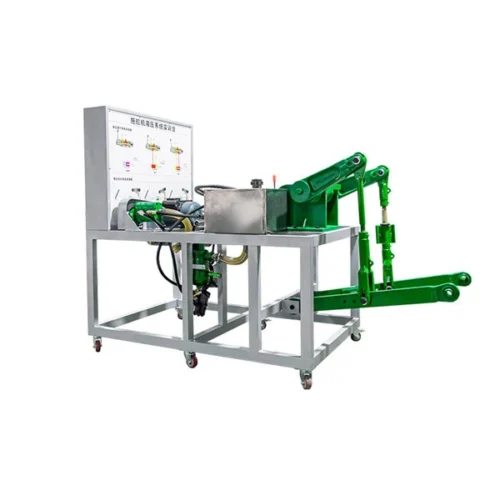
Tractor Controls and Operation
Cover the essential tractor controls, such as the steering wheel, throttle, and brakes.
Emphasize correct operation techniques, including starting, stopping, and steering.
Terrain and Environmental Considerations
Discuss the significance of adapting tractor operation to varying terrains and environmental conditions.
Provide guidance on how to navigate different landscapes, including slopes, mud, and obstacles.
Maintenance and Care
Stress the importance of regular tractor maintenance, from checking oil levels to inspecting tires and hydraulic systems.
Provide guidelines on maintaining a clean, well-functioning tractor.
By equipping tractor operators with the knowledge and skills presented in this guide, we aim to enhance safety, productivity, and the overall agricultural experience. Tractor training is not just about learning to operate machinery—it’s about fostering a culture of safety and professionalism in farming and agricultural operations.
Tractor Safety Protocols
Tractor safety protocols are an integral part of tractor training, designed to minimize the risk of accidents and injuries. A comprehensive understanding of safety measures is critical for anyone operating tractors.
Why Tractor Safety Protocols Matter
The operation of tractors involves various risks, making safety protocols essential. Here’s why they are crucial:
Accident Prevention: Following safety protocols minimizes the chances of accidents, protecting both operators and bystanders.
Compliance: Many countries and regions have specific regulations governing tractor safety. Adhering to these protocols ensures legal compliance.
Operator Responsibility: Safety protocols instill a sense of responsibility in operators, emphasizing the importance of careful and safe tractor operation.
Common Tractor Safety Protocols
Seat Belts: Always fasten the seat belt before operating the tractor. It is a primary safety measure to prevent ejection during accidents or rollovers.
Rollover Protection Structures (ROPS): Tractors equipped with ROPS significantly reduce the risk of rollovers. Operators should ensure their tractors have ROPS, and they should be used at all times.
Safe Speed: Adhere to recommended speed limits, especially when operating on uneven or hilly terrain.
Avoid Overloading: Do not exceed the tractor’s weight capacity or carry excessive loads, which can affect stability and safety.
Keep Clear of Moving Parts: Operators should be cautious around PTO shafts and other moving components. Loose clothing and long hair should be secured to prevent entanglement.
Be Aware of Surroundings: Regularly check for obstacles, people, and animals in your path. Maintain situational awareness.
No Passengers: Tractors are designed for a single operator. Never allow passengers unless the tractor is equipped with a second seat with proper safety restraints.
Proper Hitching: Ensure secure and proper hitching of implements. Loose attachments can lead to accidents.
No Alcohol or Drugs: Never operate a tractor under the influence of alcohol or drugs.
By adhering to these safety protocols, tractor operators can significantly reduce the risk of accidents and ensure a safer working environment.
Choosing the Right Tractor Training Equipment
Selecting the appropriate training equipment is essential for a comprehensive and effective tractor training program. The right equipment provides trainees with hands-on experience and simulations that mirror real-world scenarios.
Simulators and Virtual Training
Tractor simulators offer a controlled environment for trainees to practice tractor operation.
These simulators provide a realistic experience without the risks associated with live equipment.
Virtual training allows trainees to familiarize themselves with tractor controls and procedures before moving to practical exercises.
Hands-On Training Tools
Model tractors and simulated control interfaces provide tactile learning experiences.
Trainees can practice actual tractor operation without the need for a real tractor.
Interactive scenarios and exercises offer a practical understanding of tractor operation.
Safety Equipment and Protective Gear
Safety equipment such as helmets, gloves, and high-visibility vests are essential for hands-on training.
Trainees should learn to use protective gear and understand its importance in real-world tractor operation.
Safety equipment reinforces the importance of safety in training and actual operations.
Training Programs and Curriculum
Effective training programs and curricula are the backbone of comprehensive tractor training. They provide structure and knowledge to ensure that operators are well-prepared for safe tractor operation.
Structured Training Programs
Training programs should follow a structured curriculum that covers essential topics in a logical sequence.
Topics include tractor controls, operation principles, safety protocols, and maintenance.
Structured programs can be tailored to accommodate various skill levels, from beginners to advanced operators.
Hands-On Practical Exercises
Practical exercises should be a core component of any tractor training program.
Trainees should practice real tractor operation under the guidance of experienced instructors.
Exercises should cover basic tasks, such as starting, stopping, and steering, as well as advanced operations like implement attachment and specific tasks related to the agricultural context.
Interactive Classroom Learning
Classroom learning should complement hands-on training.
Instructors can use multimedia presentations, manuals, and discussions to reinforce theoretical knowledge.
Classroom sessions cover topics like safety regulations, laws, and the legal aspects of tractor operation.
Certification and Assessment
Training programs should include assessment and certification processes.
Trainees are evaluated on their knowledge and practical skills.
Certificates are awarded to successful participants, enhancing their credibility as tractor operators.
By implementing structured training programs, hands-on exercises, interactive classroom learning, and certification processes, tractor training becomes comprehensive and ensures that operators are well-equipped for safe and efficient tractor operation.
Advanced Tractor Training
Advanced tractor training is designed for operators seeking to expand their skills beyond the basics. This specialized training equips them to handle more complex tasks and operate specialized equipment.
Target Audience
Advanced tractor training is suitable for:
- Experienced tractor operators looking to enhance their skills.
- Operators working with specialized tractors or equipment.
- Those seeking to become experts in specific tractor operations.
Specialized Training Areas
Precision Farming: Advanced training covers precision farming techniques, including GPS-guided tractor operations and data analysis for optimized yields.
Implement Handling: Operators learn to attach and operate a variety of specialized implements, such as plows, seeders, and harvesters.
Advanced Safety Protocols: Advanced training reinforces safety protocols specific to the operation of specialized equipment.
Environmental Considerations: Operators are trained to adapt tractor operations to various environmental factors, such as soil conditions and weather.
Troubleshooting and Repairs: In-depth training on identifying and addressing complex issues that may arise during operations.
By undertaking advanced tractor training, operators gain the skills and knowledge needed to tackle specialized tasks efficiently and safely.
Tractor Maintenance and Care
Proper maintenance and care are fundamental to ensuring that tractors operate smoothly, remain safe, and have an extended lifespan. This section outlines key aspects of tractor maintenance and care.
Regular Maintenance
Routine maintenance schedules must be established, covering tasks like oil changes, filter replacements, and lubrication.
Maintenance should be conducted according to the manufacturer’s recommendations to preserve the tractor’s performance.
Inspections
Regular inspections are vital to identify and address issues promptly.
Inspections encompass components like tires, brakes, belts, hoses, and the electrical system.
Cleaning and Storage
Tractors should be kept clean to prevent dust and debris from affecting sensitive components.
Proper storage, including protecting tractors from adverse weather conditions, is essential to extend their lifespan.
Record-Keeping
Operators should maintain detailed records of maintenance and repair activities.
Records help in tracking maintenance schedules, identifying recurring issues, and providing evidence of care for potential buyers or insurers.
Preventive Measures
- Implement preventive measures to reduce the risk of wear and tear. This includes measures like using the correct fuel and following safety protocols.
By consistently maintaining and caring for tractors, operators ensure their equipment operates efficiently and safely for years to come.
Troubleshooting and Repairs
Tractor operators must be familiar with troubleshooting common issues and making minor repairs. This knowledge is invaluable for minimizing downtime and avoiding costly repairs.
Common Issues
Tractors may experience issues like engine stalling, electrical problems, hydraulic leaks, or overheating.
Operators should be trained to recognize common problems.
Basic Troubleshooting
Provide a step-by-step guide to basic troubleshooting. For instance, in the case of an engine not starting, operators should check the battery, fuel supply, and ignition system.
Emphasize the importance of safety during troubleshooting.
Minor Repairs
Operators should learn how to perform minor repairs, such as changing spark plugs, replacing belts, or fixing hydraulic leaks.
Training should include safety measures and guidelines for when to seek professional help.
Knowing When to Seek Professional Help
Train operators to recognize when issues are beyond their expertise and require professional intervention.
Stress the importance of addressing critical issues immediately to prevent further damage.
By offering guidance on troubleshooting common problems and conducting minor repairs, tractor operators can reduce downtime, maintain their equipment, and maximize productivity.
How Zhongcai Helps You with Tractor Training Equipment
Are you in search of a reliable partner for your tractor training equipment needs? Look no further than Zhongcai, your trusted source for high-quality automotive education equipment in China.
At Zhongcai, we understand the unique demands of the automotive industry, and we’re here to make your journey into tractor training seamless and efficient. Our expertise spans a range of products, including Automotive Cutaway Models, Automobile Electrical Training Equipment, Electric Vehicle Training Equipment, and Automobile Engine Training Equipment. When it comes to tractor training equipment, we’re the experts you can count on.
Comprehensive Product Range
Zhongcai offers a diverse range of tractor training equipment tailored to your educational needs. Whether you’re looking for tractor cutaway models, electrical components, or engine training tools, we have it all. Our products are designed to provide hands-on experience and in-depth knowledge, making your training programs more effective.
Quality Assurance
Quality is our top priority. All our tractor training equipment is manufactured to the highest standards, ensuring durability and accuracy. We understand the importance of precision when it comes to training in the automotive industry, and our products reflect that commitment to excellence.
Custom Solutions
Zhongcai is not just a supplier; we are your partner in education. We offer custom solutions to meet your specific training requirements. If you have unique needs or preferences, we can tailor our products to suit your curriculum, ensuring an optimal learning experience.
Competitive Pricing
We believe that quality education equipment should be accessible to all. That’s why Zhongcai offers competitive pricing without compromising on product quality. We aim to make tractor training equipment affordable for educational institutions of all sizes.
Global Reach
No matter where you are in the world, Zhongcai can serve your needs. We have extensive experience in international shipping and logistics, ensuring that your tractor training equipment reaches you on time and in pristine condition.
Customer Support
Our commitment doesn’t end with the sale. Zhongcai’s dedicated customer support team is always ready to assist you with any questions or concerns. Your satisfaction is our top priority.
When it comes to tractor training equipment, Zhongcai is your ideal partner. We are dedicated to providing the tools and resources you need for a successful training program. Trust in our experience, quality, and commitment to education.
Contact us today, and let Zhongcai simplify the process of acquiring top-notch tractor training equipment for your institution. Your success is our priority.
Conclusion
In the world of agriculture and farming, tractors are the workhorses that power productivity and ensure successful operations. However, the significance of tractor training cannot be overstated. It’s not just about understanding how to operate this powerful machinery; it’s about safeguarding lives, property, and agricultural investments.
This comprehensive guide has explored the critical facets of tractor training, providing a roadmap for both novice and experienced tractor operators. From the fundamental principles of tractor operation to advanced training and maintenance, we’ve covered it all. Here are the key takeaways:
Safety is Paramount: Tractor safety is the cornerstone of this guide. Understanding and adhering to safety protocols is non-negotiable. It’s not just a legal requirement; it’s a moral duty to protect lives and prevent accidents.
Training is a Continuous Journey: Tractor training is not a one-time event but a continuous journey. Novices can start with basic training, while experienced operators can enhance their skills through advanced training in specialized areas like precision farming.
Maintenance and Care Matter: Regular maintenance and proper care are essential to ensure tractors operate smoothly and have a longer lifespan. Preventive measures and diligent record-keeping are the keys to success.
Troubleshooting Saves Time and Money: Learning to troubleshoot common issues and make minor repairs is invaluable. It minimizes downtime, avoids costly repairs, and keeps operations running smoothly.
Tractor training is not just about the equipment; it’s about the people who operate it. By investing in training, we invest in the safety, productivity, and sustainability of agricultural operations.
We hope that this guide serves as a valuable resource for tractor operators and agricultural enthusiasts alike. As we conclude, we encourage all tractor operators to prioritize safety, embrace continuous learning, and maintain their equipment with care. By doing so, we not only ensure productive farms but also protect the well-being of our farming communities and the agricultural industry at large.
If you have any further questions or need assistance with any other topics, please feel free to reach out.



